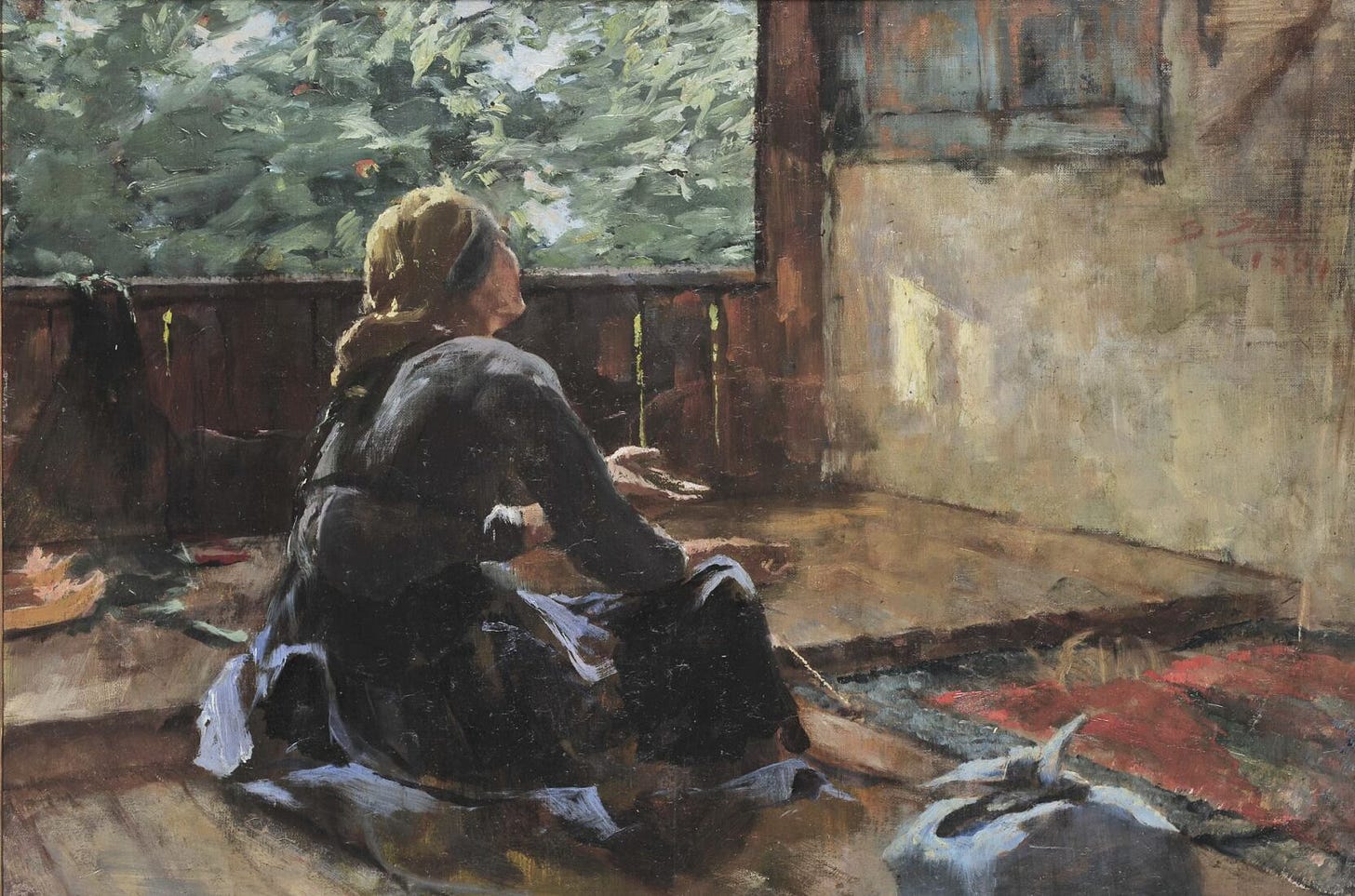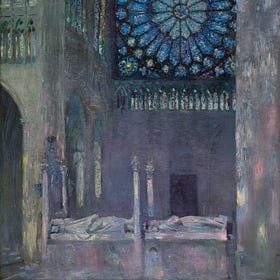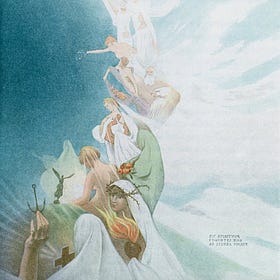A Life of Faith and Healing
An Interview with Dr. Zeyneb Sayilgan
Recently, Steve spoke with Dr. Zeyneb Sayilgan, a Muslim scholar at the Institute for Islamic Christian Jewish Studies in Baltimore.
Dr. Sayilgan describes how her religion and upbringing has influenced her work on religious literacy and community building.
I think it was hard in the beginning. I love Germany. It's one of my places that I call home. My family, friends all live there. I majored in German literature. I love the German culture, the German old cities and all of that. But I think it's still hard to be a Muslim in Germany, as a Muslim woman in Germany, because religion is not very much out there in the public sphere.
And even if you are a regular churchgoer as a Christian and you bring that up a conversation, it would cause for some interesting reactions. I started wearing my headscarf, which is an expression of my Muslim faith, early in middle school. So, I have experienced a lot of bullying and discrimination. And that was hard as a Muslim child to see that. Adults who are educators who are supposed to be supportive and encouraging in your educational journey actually were very belittling, were discriminating. It was a painful experience because any child wants to belong and wants to feel part of their community. And when you get the signal from the larger mainstream society that you are not welcome the way you are because you are too different, or you are too religious, then that creates a lot of hurt.
I think I still carry bitterness and resentment with me at times, looking back that I felt my country did not see my potential or didn't appreciate me. And I eventually left because I faced challenges, obstacles in the workforce, trying to apply as a scholar, as an academic.
. . . It's become a little bit easier, but as a Muslim woman who is dressed in a certain way, even if you have just a Muslim sounding name, you experience a lot of rejection. . . . I'm forty-five now. After all these years, we’re not making enough progress. I think things still have changed positively. I don't want to sound too pessimistic. Just being as a Muslim was not something that was embraced.
How different was it when you came to the U.S.?
So, it's been now almost twenty years. I came here after I finished my graduate studies in Germany. I cannot speak for all Muslim women, but my own particular experience was a positive one. When I came, my difference and diverse background was something that was valued, welcomed, appreciated, and seen as a richness to the academic field.
So, the languages that I spoke, the cultures that I was connected and immersed in, and I think that's the beauty of immigrants. Their rich background, the languages, the experiences. And so, I, as a Muslim woman, as a Muslim student, I had good experiences.
You easily could have said I am just going to head on my path, keep my head down and not engage with this discrimination or this misunderstanding, but you really have taken part in what feels like to me is trying to create some dialogue and some understanding.
Was there some moment, or did you just feel that from the beginning as a sense of mission?
I think a lot of us bring ourselves to our work. My own personal experience was growing up as a Muslim, shaped my interest and who I wanted to become. I think I bring myself fully to this work because I embody this dialogue. I have a very German critical mind. There was always a sense of suspicion towards religion, and I always feel the internal dialogue that I'm making. And, in a sense, I embody the conversation between the East and the West and Islam and the West—the conversation between the secular and the sacred.
There are these two aspects of me who want to make sense of faith and religion in the modern world about tradition and science. Growing up in Germany was truly a privilege, a blessing really. I grew up in an environment educational system that values critical thinking, analytical thinking, and rationality. So, for me, I realized if I don't tell my story, my narrative, nobody else will. And that gradually brought me to this whole work of religious literacy and inter-religious understanding, because I realized in my communities there's a lot of misconceptions about the other. And I wanted to be somebody who helps, who brings communities closer, who helps them understand each other.
You coedited Faithful Neighbors with Robert Heaney, and I'm wondering, in putting together a collection of essays like that, what did you learn from the people who contributed about living together with people of different beliefs, more of that religious literacy?
I think a lot of what I've learned in one of the essays is that there is sometimes this anxiety, I'm not religiously literate enough to enter into a dialogue with another religious person. I don't know enough about my own religion, about the other religion, or I'm not an expert to come into this conversation.
And what studies show is that you don't need to be an expert. The beauty of dialogue is when you come and enter this conversation, you enter into a dialogue with yourself first. You become more self-aware of who you are. I think it's not something that only religious people should do. It's something that I would love more people to talk about in schools and other institutions and libraries because religion is still meaningful and is important to a lot of people. I'm a mother and I would love for my daughter to have a basic understanding, some literacy about the people, the fellow human beings with whom she shares this planet.
Do you have a sense that you've been led to what you're doing, that God is working in your life? To put you where you are. Do you look at it that way, or do you see it differently?
When I was at the seminary, I heard a lot of the students always say, oh, God called me to do this work. And I'd never heard that language in that particular way. But I definitely, as a Muslim person, I think that our lives are not just happening coincidentally. Everything in our lives is a sign, a miraculous event unfolding something about the divine.
If we can approach it as a letter from God and try to read and reflect and ponder about the meanings. Why did this happen to me? What's the reason? What's the purpose? And can I now take this experience and write a beautiful ending with God's permission, taking all that amazing experience. The painful and the joyful. And I think that's where our freedom lies. I can decide what to do with that painful experience or that sadness or even the injustice that I faced.
God was working in all of this, and I couldn't always understand the divine work. But it makes you more mature, and a life lived without suffering, or pain, or sadness is not a human life lived fully or experienced fully.
Because the spectrum of human life is the sun and the moon, it's the lunar and the solar. And often growth happens in the very painful moments in your life. And I've experienced that. I continue to experience that. It doesn't mean that in darkness, or pain, or suffering, God's creative work stops. He didn't abandon me. He didn't reject me. In fact, there's still growth happening.
I really appreciate the patience you've had to develop when people speak out of misunderstanding or misconceptions, but that's still very inconvenient for the people who are the brunt of that. So one thing I would love to ask here is, what do you love most about Islam? About the teachings and traditions and your faith?
There's so much to share. But I feel for me, Islam is a tradition that really addresses all my needs and nourishes all my needs, whether it's the physical, the spiritual, the intellectual, the emotional, I feel truly sustained and strengthened and nourished. And there's always a sweet challenge in Islam.
It's something that there is that sweet struggle that leads to transcendent of the ego and self-transformation that I really appreciate. I love also the social aspect of it. How when you go into the community, you see the sea of diverse people, yet you can share in the most sacred moments together.
I remember this one incident I was in the hospital. And it was prayer time, so I found that beautiful interfaith chapel and I entered and then a nurse came in. She asked me, are you starting to pray?
And I said, yes. And then she joined me, and we were praying together. And here we are like two complete strangers. And we had this shared vocabulary, the language, the rituals. We could talk about death and life, and we could understand each other.
It was a powerful moment for me. A testament to the unity that Islam has created. And I love being in that cosmopolitan community. And for me, that is a very beautiful very powerful element in the Islamic tradition.
You're raising your children in yet a different place than you were raised in, which is a different place than your parents were raised in. Are you hopeful for your children's future as Muslims in the States here?
As I studied the Quran and my own tradition, I actually realized geography is not that important, meaning that your religious core cannot be narrowed down. In fact, I have three passports, German, Turkish, American, but none of them captures my being. It means that I cannot say my sense of belonging is only tied to this one place or space or territory.
The Qur'an makes you so much bigger. You are a human being that has a spirit, and that spirit cannot be contained by a certain place or territory. We are spatial beings. We start somewhere, but the spirit is a non-material entity. You have to expand. I think there's an invitation to expand your humanity, to expand your sense of self, because you are a body. You are a spirit, you are a heart, but you're not a territorial being only. And I think a lot of times in my childhood or upbringing, it was like, are you German? Are you Turkish? Are you this? Where do you belong? And you realize, especially with an immigrant upbringing, that you love all of these places.
So I'm hopeful. And the notion of home . . . in the Islamic tradition, we are called to be in this world like a traveler or stranger. We should not fully settle. And there is a beauty in that. You try to make the most of every moment, but you also know that you can depart anytime. I'm trying to say wherever we are, wherever God has placed us, we can find beauty and goodness and wisdom. And there's not one country who owns it. God has blessed all cultures and countries with beauties and wisdom and creativity and wherever we can find it. That's where we also belong. So, wherever I am placed, I'll bring myself fully there mentally, intellectually, emotionally . . . and God has placed me here.
Steven Kapp Perry, host of the In Good Faith podcast, talks with believers of all walks of faith. This podcast aims to highlight the personal experiences of believers, collecting stories of hope and inspiration.
This transcript has been edited for clarity and length. Listen to the full interview at https://www.byuradio.org/Episode_268. Also, listen to an extended interview on the In Good Faith YouTube channel:
MORE “IN GOOD FAITH” INTERVIEWS
Contemplative Silence
In Good Faith host Steven Kapp Perry sat down with Cassidy Hall, an award-winning filmmaker, a podcaster, and a leading voice in contemplative spirituality. Her films include In Pursuit of Silence and Day of a Stranger. She’s the co-host of the Encountering Silence
Companions in Faith
In Episode 94 of In Good Faith, Steve speaks with Reverend Andrew Teal, an Anglican reverend who works to build friendly, trusting relationships between different religions. A chaplain, fellow, and lecturer in theology at Pembroke College, Reverend Teal specializes in interfaith dialogue and frontier spirituality.






